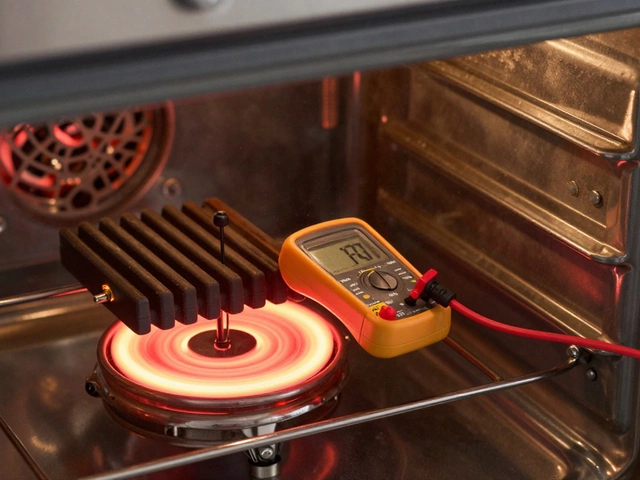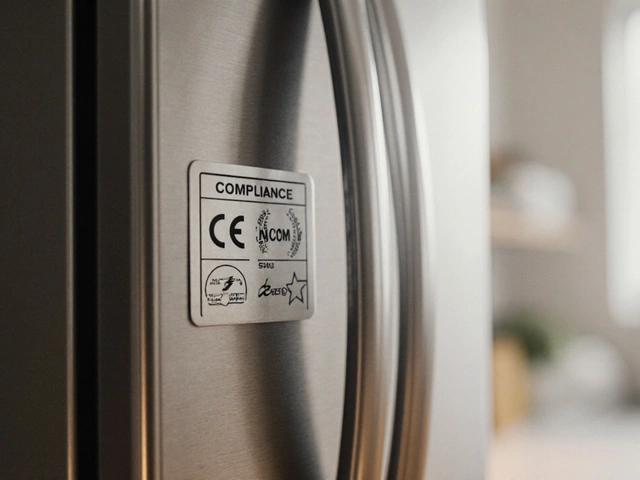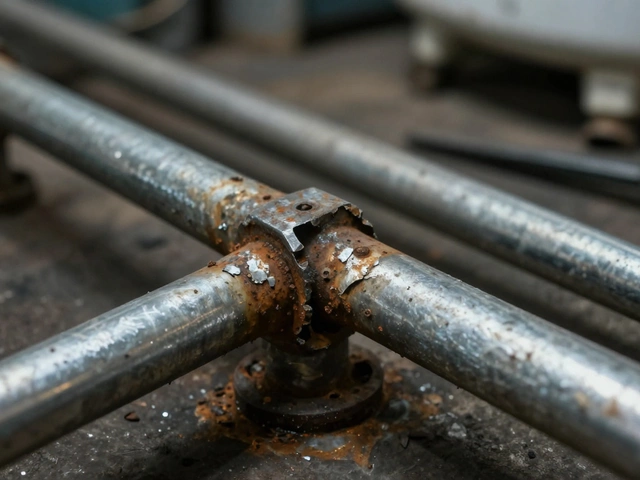Electric Oven Repair: Why Is There No Heat Coming Out?
May 30 2025Boiler Maintenance Made Simple: Keep Your Home Warm Without Worry
If your boiler stops working, your whole house feels the chill. But regular maintenance can stop most breakdowns before they happen. A quick check once a year and a few easy habits can save you money, keep the heat on, and protect your family from gas hazards.
Why Regular Boiler Maintenance Matters
A well‑maintained boiler runs cooler, uses less fuel, and lasts longer. Dust on the heat‑exchanger, low water pressure, or a faulty thermostat can make the unit work harder, bump up your bills, and increase the risk of carbon monoxide leaks. That’s why a certified engineer should inspect the gas connections, test the safety valve, and clean the burners at least once a year.
When you skip service, you’re gambling with safety. A cracked pressure relief valve can explode, and an unchecked condensate line can cause water damage. Even small problems, like a noisy pump, often signal bigger wear that a professional can catch early.
DIY Checks You Can Do Today
Before you call anyone, there are a few things you can look at yourself. First, check the boiler pressure gauge – it should sit between 1 and 1.5 bar when the system is cold. If it’s lower, you can top it up using the filling loop; if it’s higher, bleed a radiator to release excess pressure.
Next, listen for unusual noises. A banging or whistling sound usually means air trapped in the radiators or a loose part. Bleeding a radiator is easy: turn the valve, let a few drops of water out, then close it. If the noise remains, it’s time to call a pro.
Another quick test is the thermostat. Make sure it’s set to ‘heat’ and the temperature is higher than the room’s current temperature. Sometimes a dead battery or a mis‑set program is all that’s stopping the heat.
Finally, look at the boiler’s outside vent. Clear any leaves or debris that might block airflow. Good ventilation is key for safe combustion and efficient heating.
These simple steps keep your boiler running smoothly between professional visits. They also give you a clear idea of what’s wrong if you do need a repair.
When you do need a professional, choose a Gas Safe registered engineer with experience in your boiler model. Ask for a written quote, confirm they’ll check the safety valve, gas pressure, and carbon monoxide levels. A good service includes a full safety check, cleaning, and a report on the boiler’s condition.
If your boiler is over 10‑15 years old, ask about its efficiency rating. Modern condensing boilers can be 30‑40 % more efficient, which means lower bills. Replacing an old unit may cost more upfront, but the long‑term savings often outweigh the price.
Bottom line: regular maintenance, a few DIY checks, and a trusted engineer are the trio that keeps your heating running safely all winter. Stay on top of it, and you’ll never be left shivering in the cold.
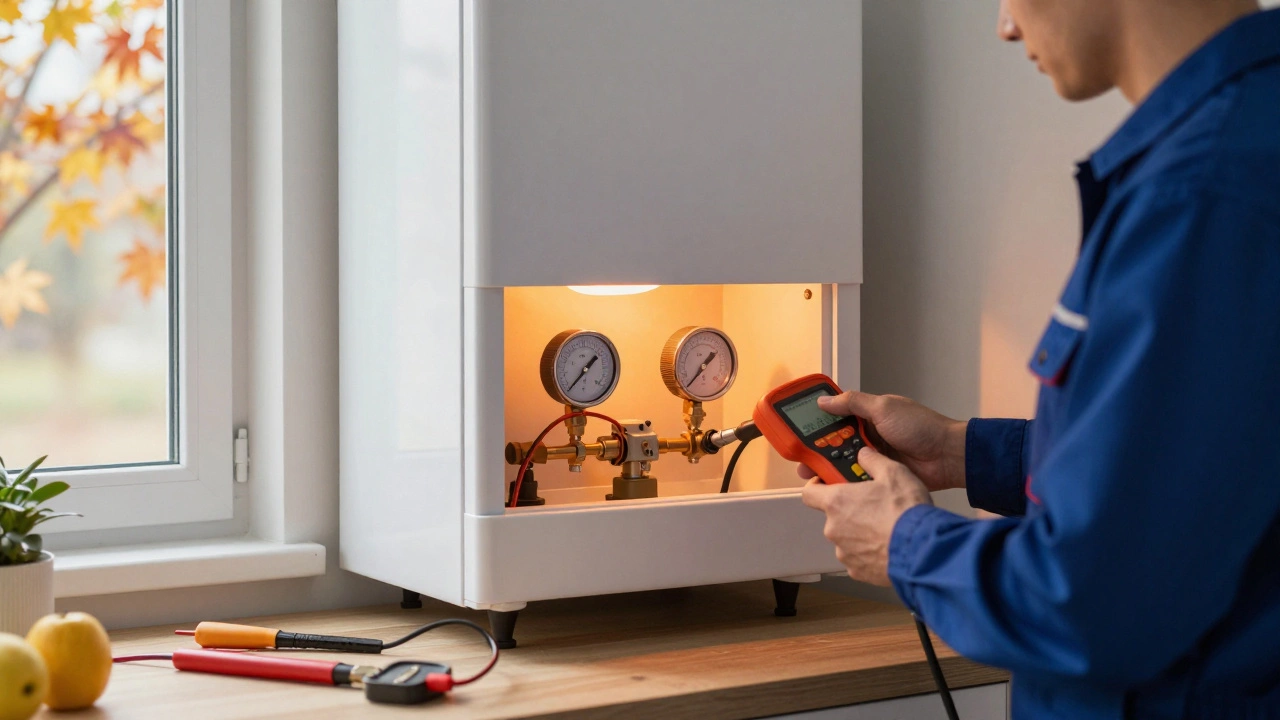 26 Feb
26 Feb
How Often Does a Boiler Need to Be Serviced?
A boiler should be serviced once a year to ensure safety, efficiency, and longevity. Skipping maintenance raises the risk of carbon monoxide leaks, costly breakdowns, and wasted energy. Annual checks by certified technicians are essential in New Zealand homes.
Read More...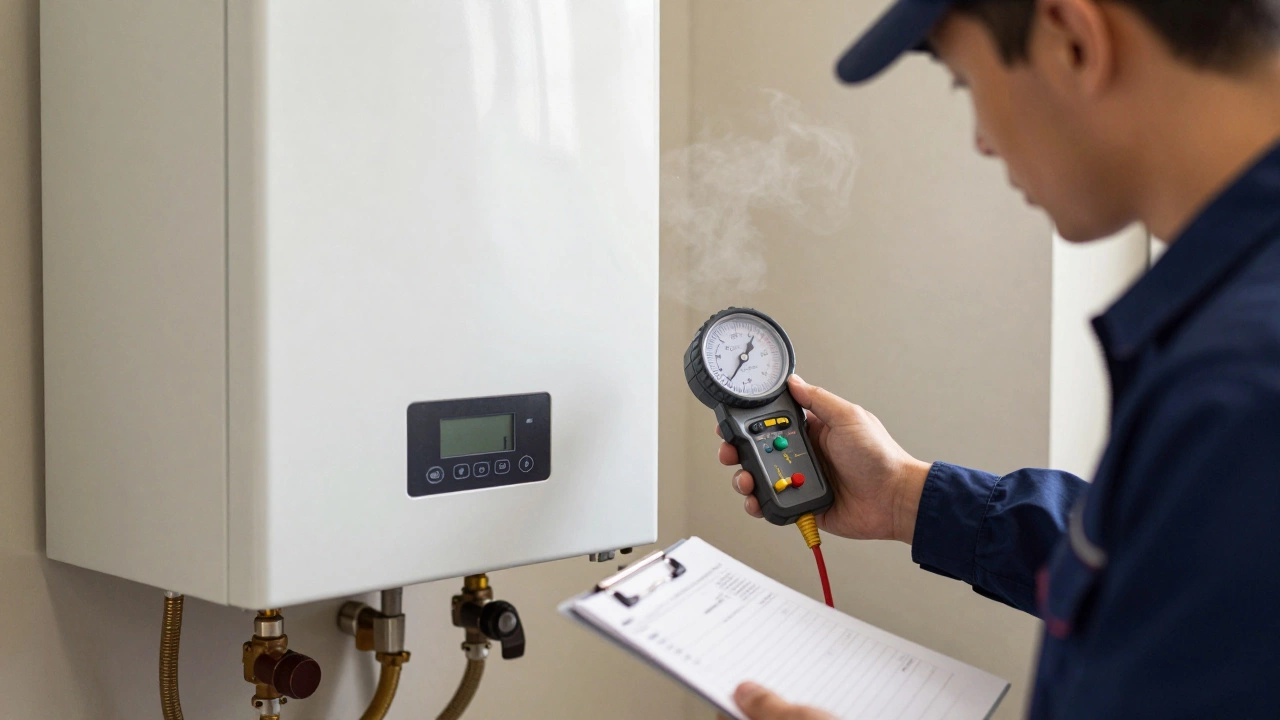 15 Feb
15 Feb
What's Included in a Boiler Service? A Clear Breakdown for Homeowners
A boiler service includes a full inspection, safety checks, cleaning, and performance testing to keep your heating system safe and efficient. Skipping it risks costly repairs and carbon monoxide dangers.
Read More...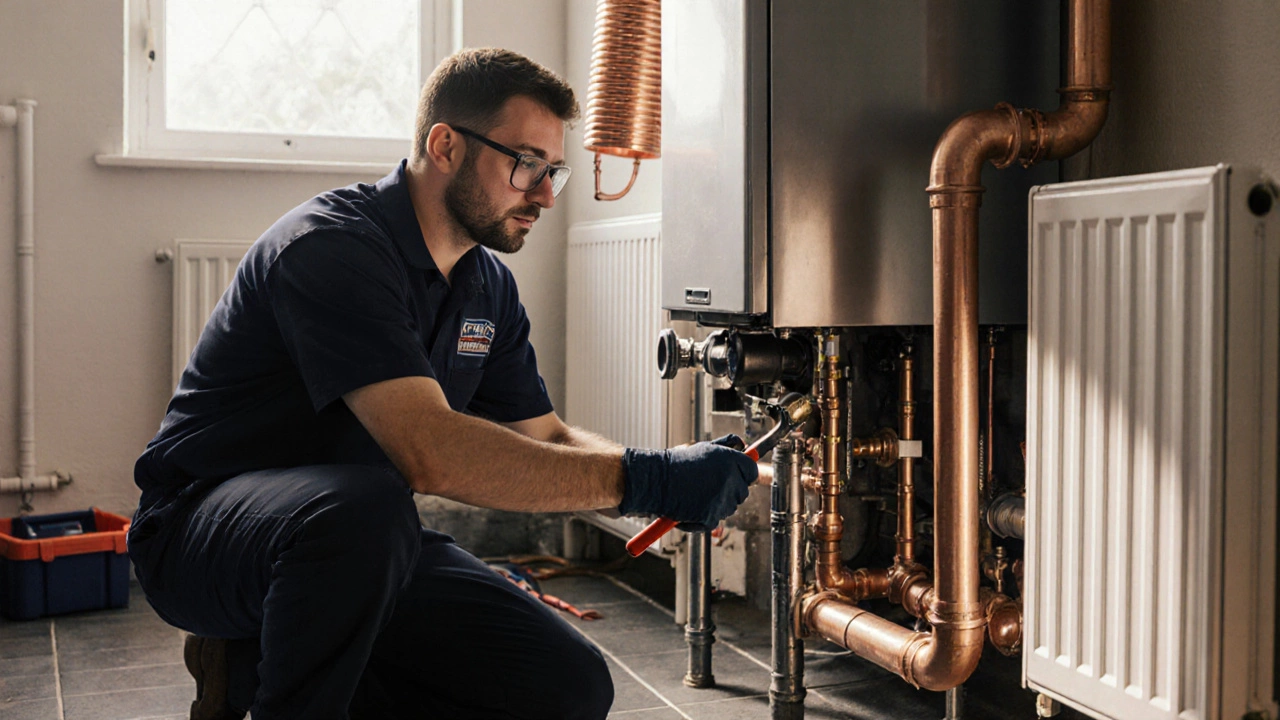 24 Oct
24 Oct
Plumbers and Boilers: Who Handles Boiler Repairs?
Find out if a plumber can fix your boiler, when you need a heating specialist, and how to choose the right professional in Auckland. Get clear cost estimates and safety tips.
Read More... 11 Jul
11 Jul
Can a Boiler Really Last 50 Years? Lifespan, Tips & Facts Explained
Can a boiler last 50 years? Explore real-life examples, expert tips, warnings, and maintenance secrets that let boilers hit—and sometimes pass—the half-century mark.
Read More... 12 Jun
12 Jun
Boiler Servicing: What Happens If You Skip It?
Skipping your boiler’s annual service can land you in hot water—literally and figuratively. This article breaks down what really happens when you ignore boiler servicing, from higher bills to real safety scares. You’ll find out how neglect can trigger breakdowns, void warranties, and even risk your health. Learn the hard-hitting effects, plus practical tips to avoid expensive headaches. Stay ahead on boiler care without wasting money.
Read More...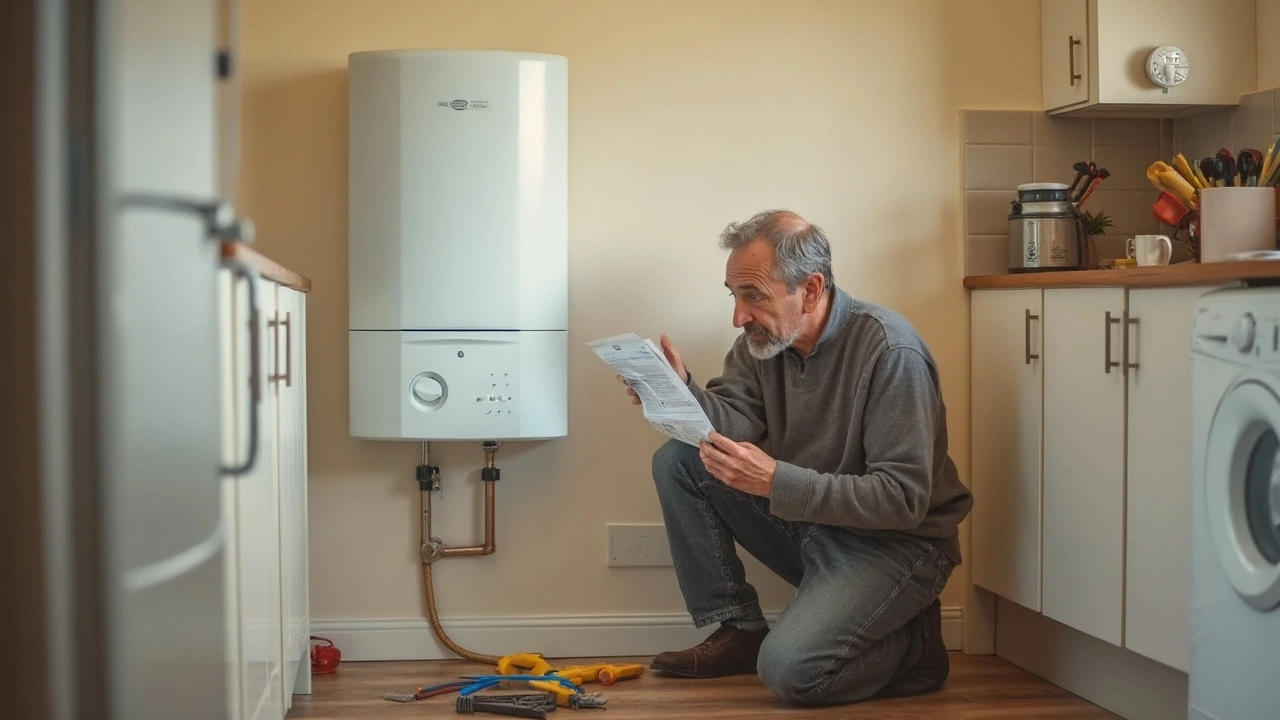 25 Apr
25 Apr
Can You Service a Boiler Yourself? What You Need to Know Before Getting Started
Thinking about servicing your boiler yourself? This article breaks down what tasks you can actually handle on your own and which ones are best left to professionals. Find out what UK law says about DIY boiler work, what tools and skills you really need, and common mistakes that can cost you. Plus, get straightforward tips to keep your boiler working safely and efficiently all year round. Stay safe, save money, and know what’s within your DIY reach.
Read More...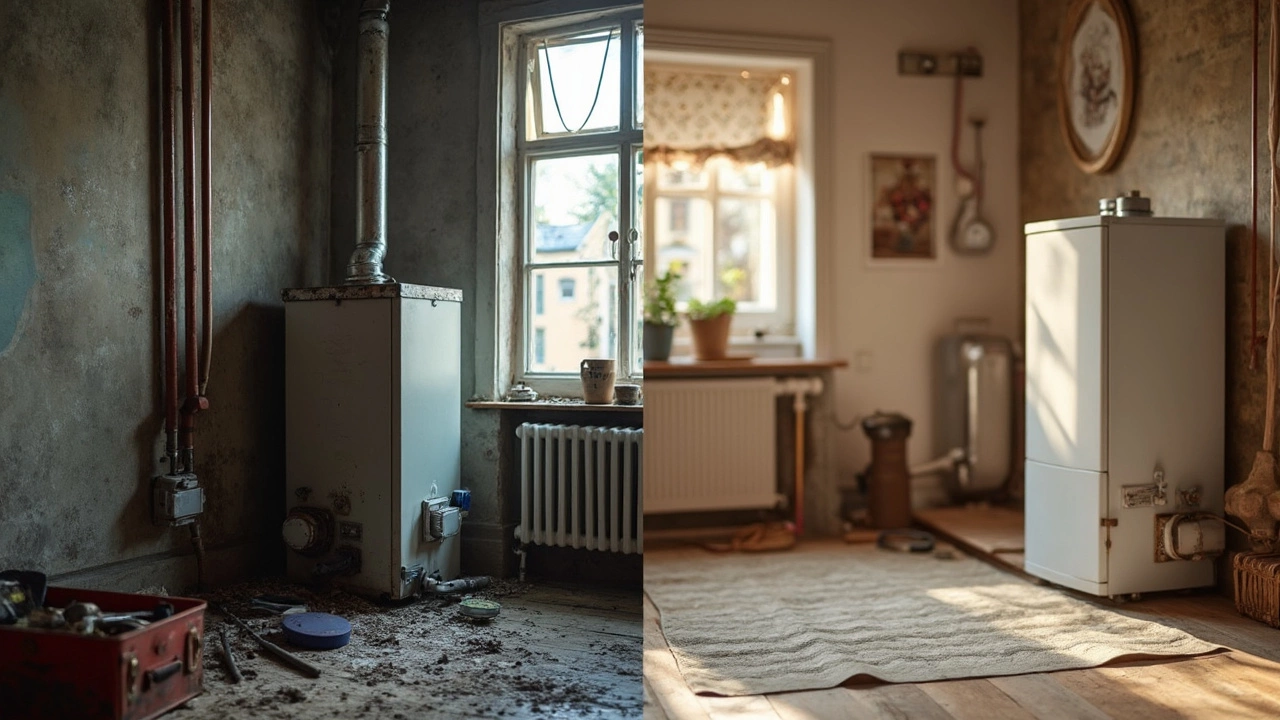 9 Apr
9 Apr
Repair or Replace Your Boiler: What's the Best Choice?
Deciding between repairing or replacing a boiler can be a tough call. The choice depends on several factors, including the boiler's age, performance, and the cost of repairs. Homeowners must weigh the pros and cons of each option, considering both immediate and long-term impacts on their wallets and home comfort. Find practical tips and insights to make your decision easier.
Read More...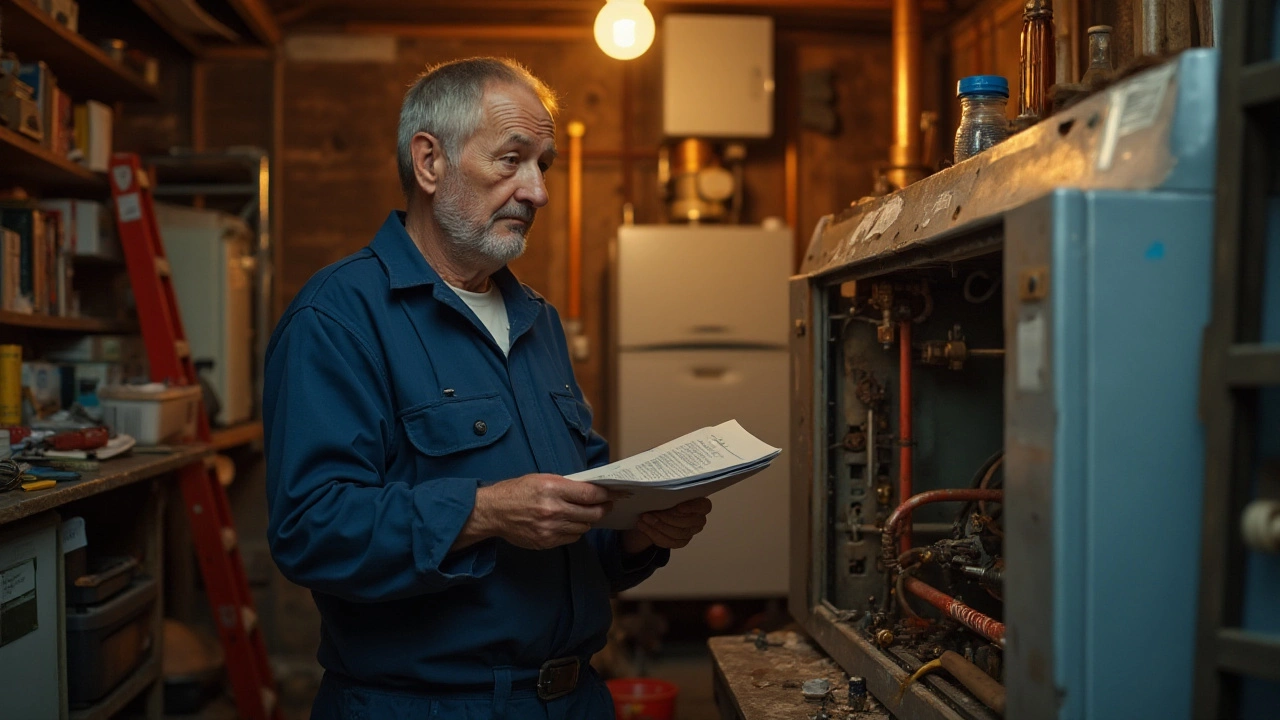 16 Jan
16 Jan
Efficient Boiler Repair: How Long Does It Really Take?
When your boiler breaks down, knowing how long it will take to fix can relieve stress and help with planning. Several factors contribute to the duration of a boiler repair, including the complexity of the issue, availability of parts, and expertise of the technician. Understanding these aspects can aid in anticipating repair timelines. Proper maintenance and knowing when to call a professional can ensure your boiler remains in good working condition, minimizing future repair times.
Read More...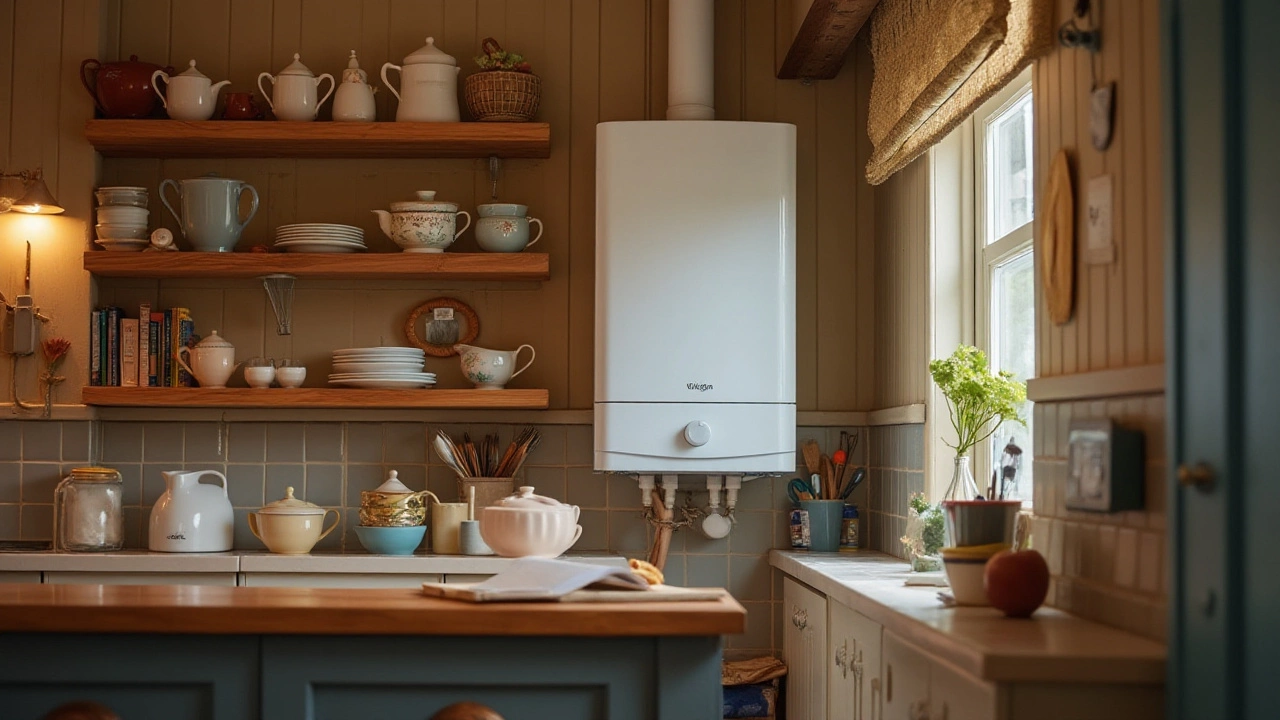 29 Nov
29 Nov
Longevity of Boilers: How Many Years Can You Expect?
Exploring the longevity of boilers, this article delves into factors that influence their lifespan and provides insights on how to maximize their performance over the years. It examines the importance of regular maintenance, the impact of different boiler types, and signs your boiler might need a replacement. Whether you're a homeowner looking to prolong your system's life or someone considering a new purchase, you will find practical tips and interesting facts about boilers. Maintaining your boiler can lead to improved efficiency and significant cost savings.
Read More...

